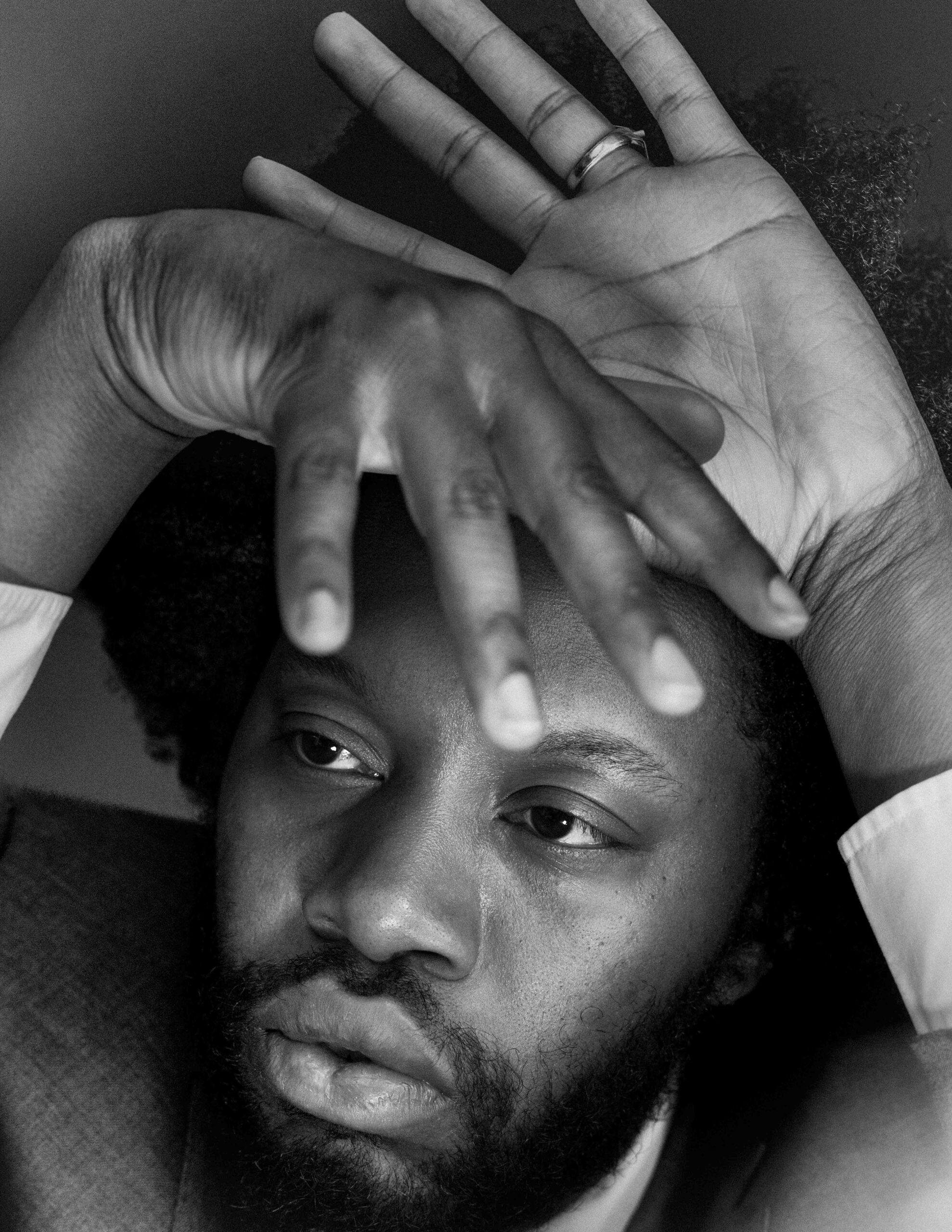For playwright and filmmaker Jeremy O. Harris, it seems the road to enduring theatre fame—or ‘auteurship,’ as referred to in conversation with Zola director and co-writer, Janicza Bravo—is paved with pleasurable labour and a little resigned expectation.
Almost a decade after the 35-year-old wrote Slave Play, a theatrical work focused on race, sex and interracial relationships, Harris’ voice remains resolute in its intention. Last year, he transplanted Slave Play to the West End in London, five years after its Broadway debut. 13 weeks, two controversial ‘Black Out’ nights and a scathing statement from 10 Downing Street later, and the playwright prevails in his unique approach to theatre. Boldly taking the road less travelled by artists of colour—regardless of public consensus—on his terms.
He is now set to lead American theatre into its next great odyssey as creative director of Williamstown Theatre Festival for the next three years. Harris saddles himself to a new genesis in Williamstown’s historic story as the inaugural creative director in a rotating model for artistic direction called the Creative Collective.
Before his upcoming Williamstown debut, Present Space was able to catch Harris in conversation with his friend, screenwriter and filmmaker Janicza Bravo, whose partnership and advocacy have given room for the evolution of both parties. The two fondly call one another “big sister” and “little brother” as they give us a glimpse into their enduring friendship over the years, how their careers have diverged since their collaboration in 2020 and the laborious fun of juggling it all.
I’m in a city that isn’t walkable. I went to go get food because I had a lot of mezcal last night, and I woke up on an empty stomach. I’m walking back [from] some place that was two miles away but it’s taken 25 minutes to get there and back.
[Laughs]. Do you know there’s been three like horrific scooter crashes. You know, those little Lime scooters?
Not in front of my face but like my friend Hudson came to the premier of my movie and then all of a sudden he was like, ‘Oh, sorry I’m late.’ And I was like, ‘What’s going on?’ He was sweating weird and hobbling. He was like, ‘A car just hit me, but I didn’t want to miss your movie.’…
Yes, like that just feels rough.
Paris.
Yes, my phone fell.
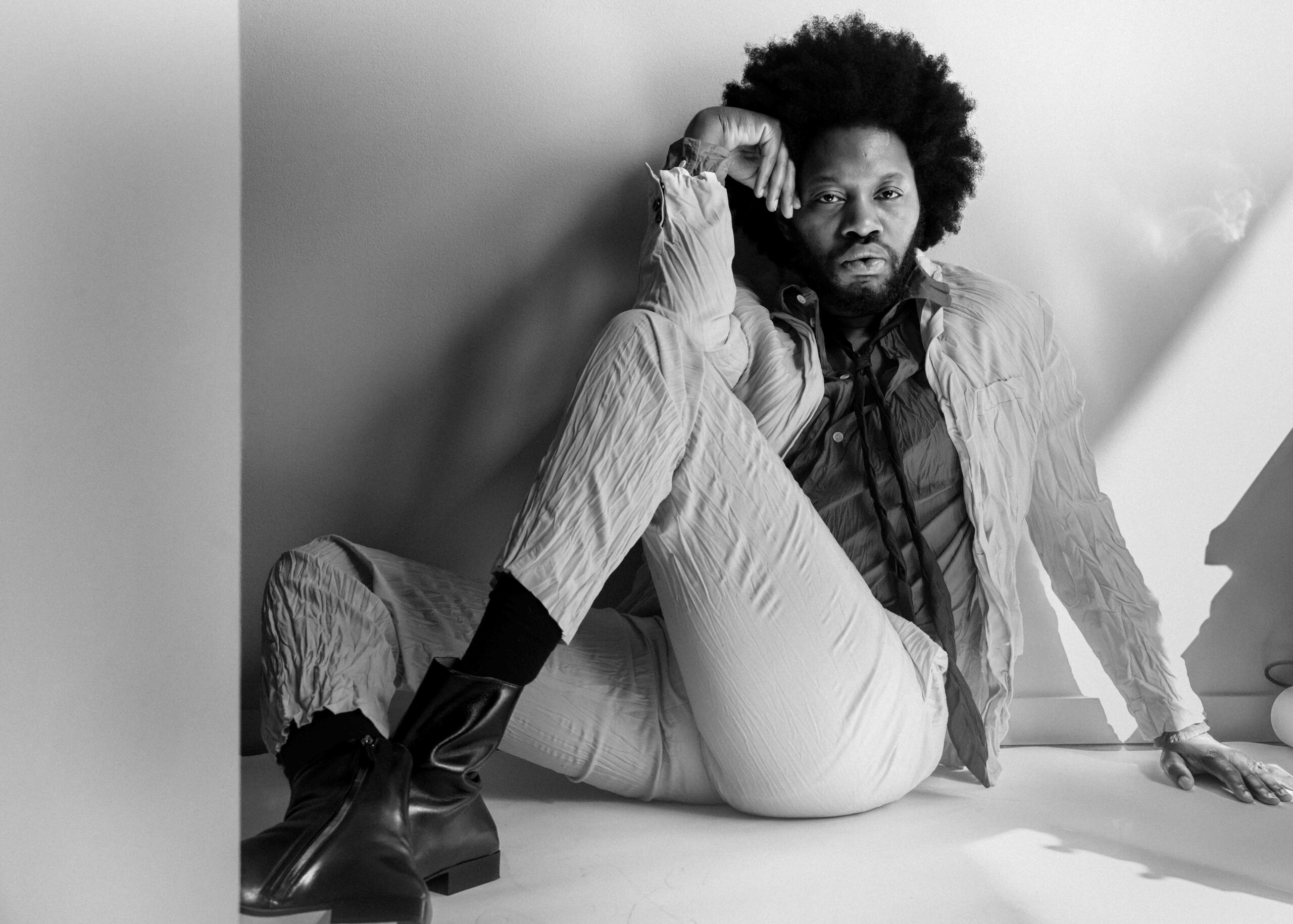
[Laughs]. Someone who doesn’t move often? Kind of like a sloth.
Totally. I think I’m an indoor cat. Like, I think I’m someone who, if I was a cat, I’d be a very nice cat. And you’d be like, ‘Where’d that cat go?’ ‘Oh he’s just sitting in a corner somewhere.’ Like, ‘Oh, he looks great up there.’ And then, all of a sudden, a rat comes and he runs and grabs it. I think I can move faster than people think, but I normally am chilling.
Oh! You think I’m one of those cats that’s constantly walking all over people on the couch. [Laughs].
I totally see it…
Spiritually?
I’m a bit overworked but that’s fine.
Yes. I like working a lot and stretching myself thin. But it is coming to a time where I need to go on a vacation so I’m really hoping I can do that for my fiancé’s birthday, have a little weekend vacation.
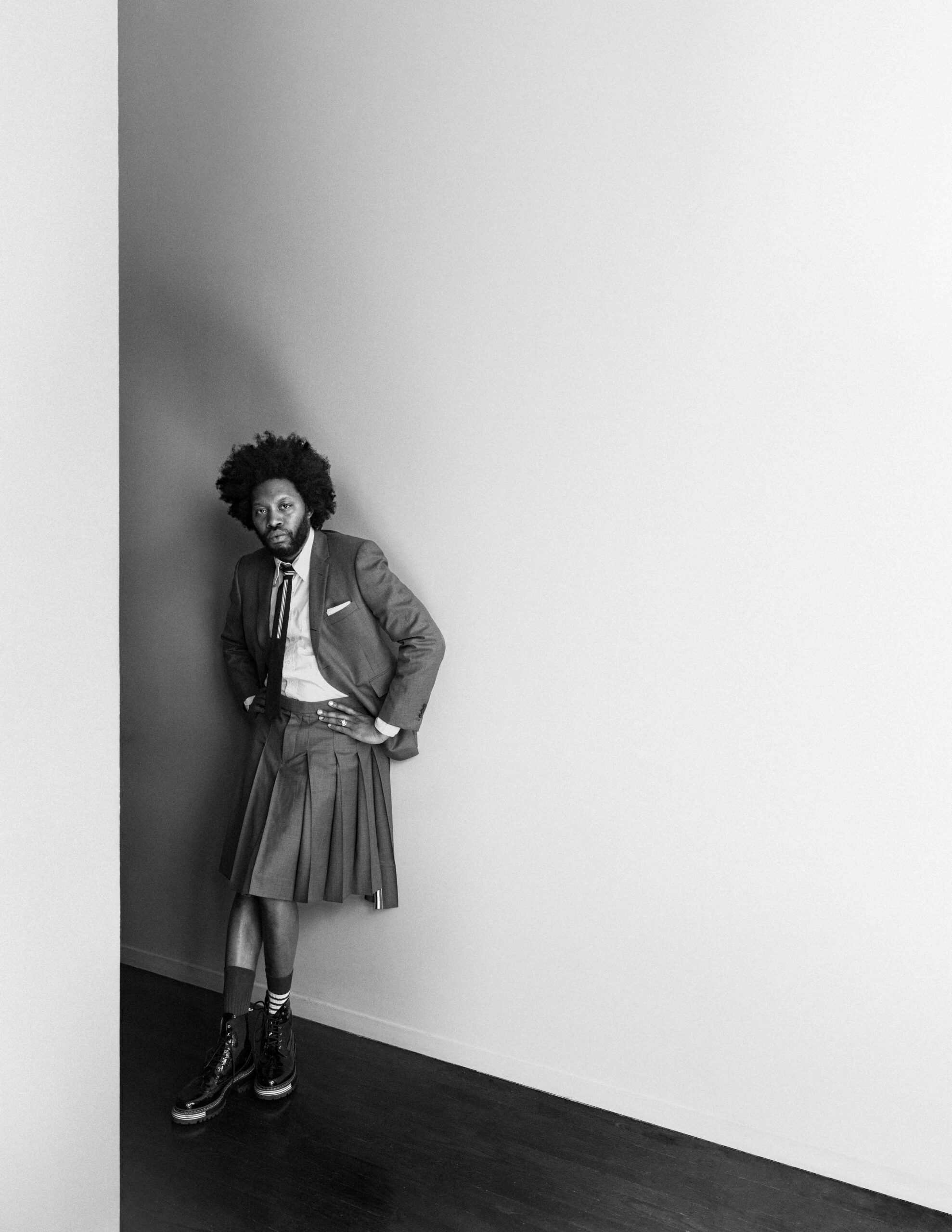
I’m writing my new play which is actually set in Mexico…
I was talking to someone about this the other day because I was very late on a draft of something. It was the kind of late that made me feel bad because I got a letter from the editor and I was like, ‘Oh, wow. I’m letting someone down that I think is very important. And I thought about this thing—I think it was Nancy Meyers—someone had told me about. Someone was asked, ‘How do you balance being a mom and a screenwriter and a director?’ And she said, ‘Listen, everyone has to juggle things in their life. There are people who juggle a couple balls and there are people who juggle a lot. I like to juggle a lot because that’s the only way I feel like I’m having fun. But when you juggle you know that certain things are going to fall, and you have to recognise that when you’re juggling with your life some of the things are rubber and some of the things are glass and you just have to make sure that the glass doesn’t break. Some of it will, but you have to make sure that you protect the glass.’ And I think that’s to say, I definitely don’t give 100% to everything, you know, I’m juggling but I’m going to make sure that where things fall or fumble it’s the rubber and not the glass.
And I definitely let some things that I feel are rubber drop that other people around me think are glass.
[Laughs]. I wouldn’t put it past her to have designed the mug and also written it.
[Laughs]. It wouldn’t be. But she [would sell] it. It was like Penny Marshall or Nancy Meyers, like a lady like that. Someone who is very successful and important on a writer-director level.
A white lady power top…
On a personal level, I’m very excited about the Williamstown Theatre Festival, which I’m creative directing right now.
Someone slid into my DMs and I was like, ‘Who is this weirdo?’ But then he looked kind of attractive, so I was like, ‘I guess I’ll talk to him.’ And he was the new Managing Director. He had this idea that they would do a rotating creative director, and I was like, ‘I think that idea is almost good, but I think it should be for a minimum three years and I think it should work like this, this, this and this.’ He was like, ‘Oh, these are great ideas.’ And I was like, ‘Well, yes and also I have to do it.’
Well yes, definitely. It wasn’t immediately like, ‘It has to be you.’ I think he thought, ‘Well, you’re obviously so busy,’ and I was like, ‘I’m obviously very busy and I want this to be a part of what’s making me even busier.’ So, I’m really excited about that.
Williamstown is a 71-year-old—essentially, a very high-end summer stock theatre festival. In the 1960s and 1970s, the idea of going upstate to the tri-state area and working on your craft as an actor, witnessing actors work on their craft as audiences, was very much a part of the summer season. It was part of the heartbeat and, you know, Williamstown was sort of the shining star because they had a really great alumni network of people who had been there and were coming back often. Back in the day it was Blythe Danner, later it was her daughter Gwyneth Paltrow then it was Ethan Hawke, and Sam Rockwell and Lesley Bibb from The White Lotus. Viola Davis worked there. You name them in the American theatre, either going to Williamstown was an aspiration or Williamstown was where they cut their teeth. Christopher Reeve got his start there… So, it’s an exciting place. Over the last couple of years, post-Covid, I think there’s been a lot of challenges with just travel in general. You see tourism spike and dip all over the place, in places that normally had really vibrant communities. But, in a way, the same is true for Williamstown. Williamstown never had like fewer than 40,000 people coming to see the plays and it’s amazing how much people’s summer trends can shift in two years. Two years of being at home or having financial insecurity has made it very easy for people to say like, ‘That’s three hours away from the city, I don’t want to do that.’ So, I’m really excited about trying to inspire people to want to get in their cars or get on the train or get on one of the buses we’re providing to come up and see some really dynamic theatre, exciting music and dance.
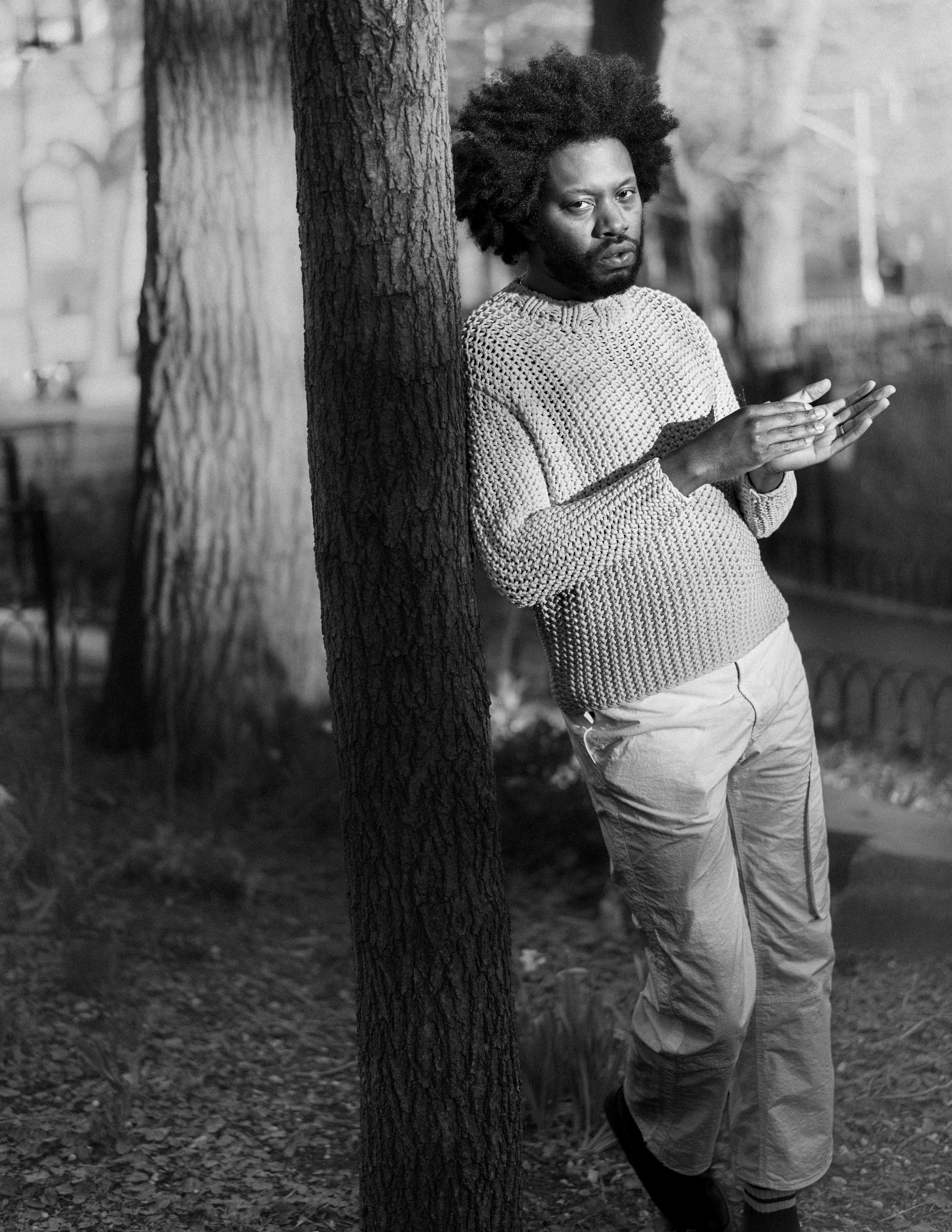
Yes, and I think that one of the things we have is weekend passes that are $79 that we’re trying to get young people to get. For $79 you can see like eight shows which is really exciting. But I’m also really trying to just figure out ways for people in and around the community, who look like us, to be the first people to see it and to see it for free, which [also] feels really exciting and thrilling. I think the big question about accessibility goes hand in hand with the big question of how you keep the lights on in these places? It’s all a really fun puzzle to solve. That’s something that draws me to producing and running a festival like this or helping run a festival like this. The sense that it’s a new level in the video game of my life and I get to find a new puzzle to solve. It’s great. We need this many young people that feel exciting and vibrant and will spread the gospel on it to be there. We also need to have a minimum ticket buy of this much and we need these people to be in the audience as well. How do you do it? Like, do we call the Gap and ask them if they can support us? Do we call some other cool people and get philanthropy to help pay for it? Because the thing that was also inaccessible about Williamstown for both of us was that people like us used to have to pay to be apprentices there. You paid to be free labour, which was a part of the financial structure of the festival for many, many years. Obviously, in the 2010s and 2020s we started asking questions about paid internships versus non-paid internships. What is ethical and not ethical about using the labour of young people and how we use the labour of young people—and those are really important questions to ask. It made the institution have to think. So, I’m also rebuilding out a structure that, for many years, excluded me and you from it on a purely financial level.
Fun? F-U-N?
Totally. I think it gets really hard. The difficulty and the sweat of it all does tax. I do constantly say that running this festival, starting a production company, writing my own work—all those things in tandem—are going to make me go grey earlier than I want as someone who has a bit of vanity. But I also think, on a very real level, that I could have done something that would have provided me more safety and security, financially, very easily.
Yes, I could have been a call girl. [Laughs]. I could have been an influencer. I could have been a lawyer. Being a lawyer was the thing I was most likely to do… But I think that the reason I kept coming back to theatre, kept coming back to film, kept coming back to this thing is that, while it was labour and hard and it made me sweat, I always had fun. It always was the thing that brought me joy. More joy than anguish. It would bring me joy if I made money from it. It would bring me joy if I didn’t make money from it, which I think is why I was like, ‘I have to do this thing.’ [I feel like that is] one of the privileges of having the family I have, who put so much very ‘unfun’ labour behind getting me to the positions I was in, where I could go to a private school, where I could go to a theatre school. Twice. I think I owe it to them to do work that, yes, it’s difficult and hard but doesn’t make me want to die. It actually makes me want to live. They sacrificed like this so I wouldn’t have to do the same. I think about all the hours my mom worked at the salon or like the Goodyear tyre—or my grandparents working at the furniture company, American of Martinsville, and just how they had to do things that separated them from a lot of their artistry, a lot of the things that actually interested them. I don’t think my grandpa actually talked about what a hobby was for him, what things he liked
Exactly and so I think I owe it to them to try and figure out how to make this life of mine as rich and exciting and fun as possible because they worked really hard for me to have that.
I have a production company.
It’s called bb²… bb² is an extension of what I was doing when I got my HBO deal, which is making space for writers who I think are like me. Making space for writers who are working in a different way… One of the directors I’m really excited about is this guy called Peter Ohs… I have really, really loved working with him and watching him mine his auteurship, like an auteur does. And I think of Hong Sang-soo or Wes Anderson and how they have those champions where they’re like, ‘Anything you want to make, I’ll help you make it.’ And I’ve always wanted to do that for a person. With this person, the way he makes his movies, I can be that for him…
I think the thing that makes me very frustrated and sad is that—outside of Sophia Coppola—I don’t know which women who are auteurs are getting consistent support to make their art. It’s also rare across the board. There are so many people that I think it’s rare for.
[Laughs]. Didn’t she do that movie in Detroit or something?
I don’t know.
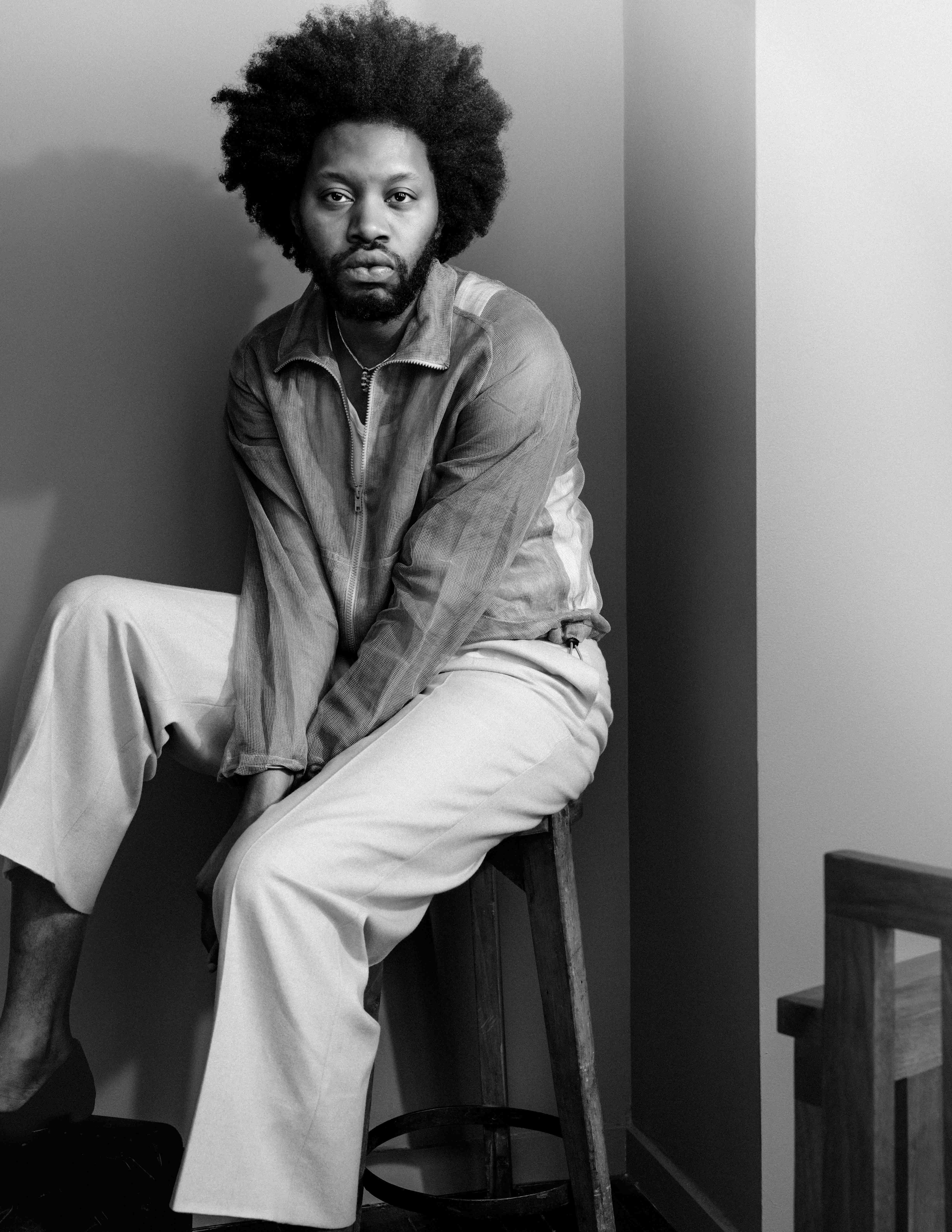
You know this actually pisses me off.
Yes, because Amy Heckerling is one of my top favourite filmmakers of all time. Mainly because she can write. Down.
She fucking made a billion dollars by today’s standards.
I have no idea. But what’s crazy is that I did an inflation calendar because everyone was like, ‘No woman has even come close to making a billion-dollar movie before Greta Gerwig.’ And, no shade on Greta. Love Greta. Love Barbie. But I did look up Amy Heckerling’s Look Who’s Talking and by inflation calculators she did make a billion-dollar movie.
Is there a world where she was just like, ‘I don’t want to be here anymore.’
She did two short films?
Why two short films? I don’t like that.
Oh wait, Amy Heckerling has been directing a lot of TV.
I don’t know. You know you are my auteur, and I’ve thought that since the first short.
You know you’re my main auteur. I keep trying to work with you and you’re like, ‘Uh, I’m working with someone else now.’
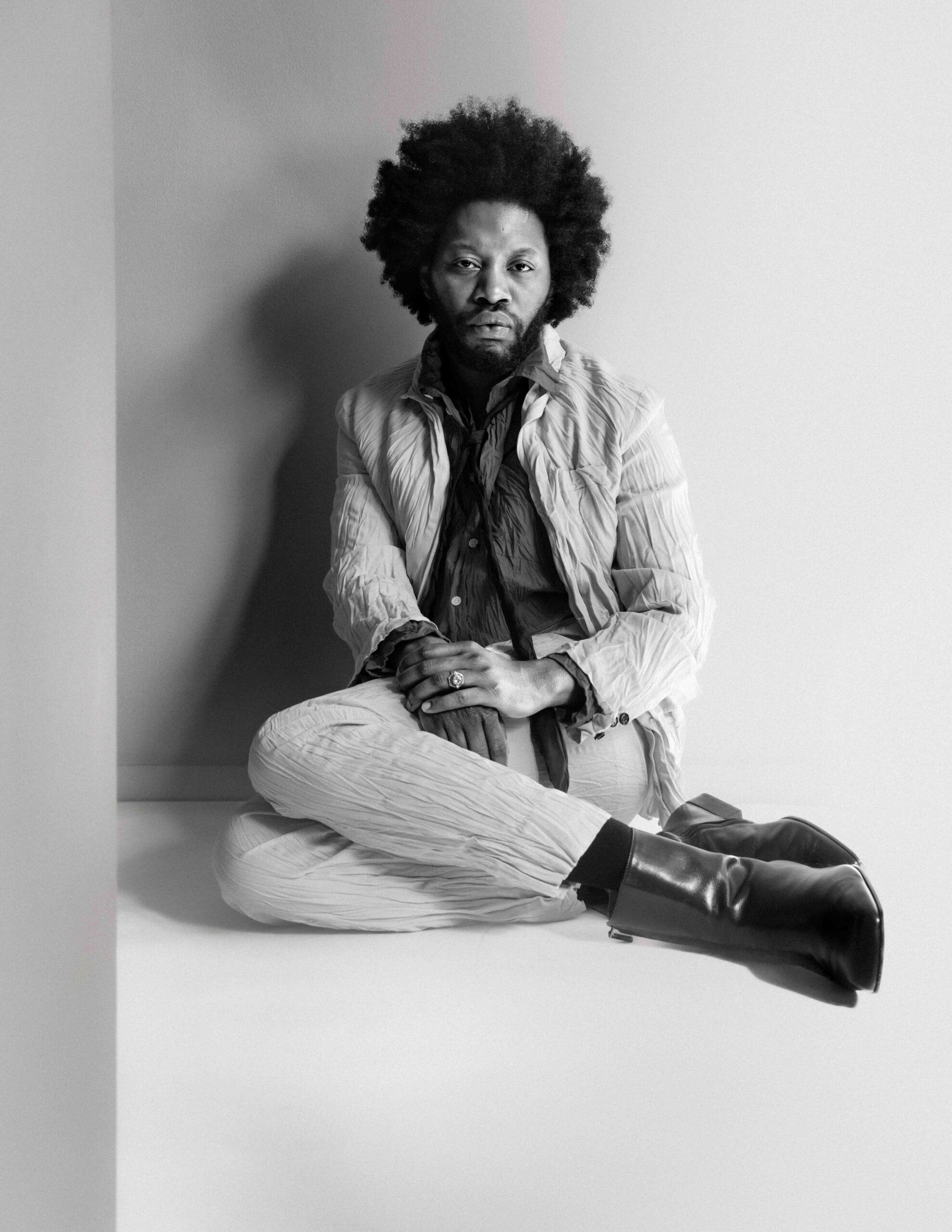
I’m big brother now?
Aw, you’re my forever.
Totally, and I think it was a real gift. For me, [too].
For me, having the opportunity to go and do my own thing helped me figure out who I was as a screenwriter and not just as a Janicza Bravo co-writer; because you’re such a specific writer and taught me so much and I loved writing with you and I love [making films] with you. But I think I would have taken longer to find my voice as a filmmaker if you hadn’t pushed me out of the nest in some ways too and said, ‘We’ll find each other again someday soon.’
Yes, and so I think it’s a two-way street.
You do that with corn.
Yes.
Okay, I’ll let you go. I love you. Go get some food.
Thank you so much for this.
